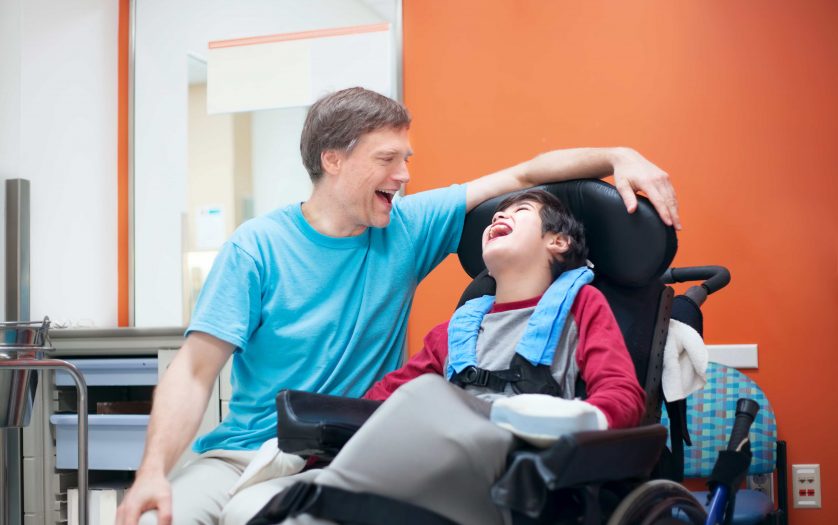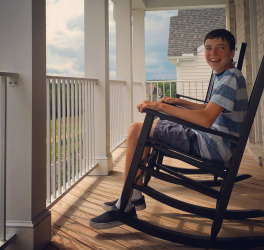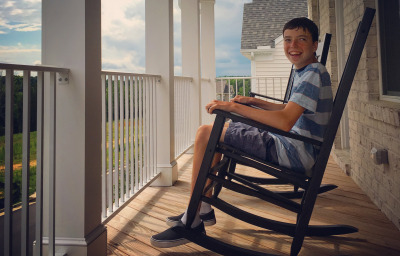
The Committee on the Rights of Persons with Disabilities concluded its consideration of the initial report of France after its Experts raised questions about its medical approach to disability, issues related to consent, and the education of children with disabilities, among others.
At the beginning of the first meeting, Rosemary Kayess, Chair of the Committee on the Rights of Persons with Disabilities, announced that the disability rights movement had lost a true champion in Committee Expert Soumia Amrani of Morocco, a well-known and well-respected advocate for the rights of people with disability, in particular autistic people. Her tragic passing on Wednesday, 18 August 2021 from coronavirus was marked by holding a minute of silence.
Committee Experts welcomed recent measures by France but noted that they were often not aligned with the Convention, given the fact that France adopted a medical approach to persons with disabilities. The 2005 law that set the medical approach was the main sticking point, particularly article 1, which created confusion between medical associations and organizations of persons with disabilities. This led to systemic discrimination against persons with disabilities – how could France move to a rights-based model? In line with this medical approach, France seemed to support the Additional Protocol to the Oviedo Convention that allowed for a deprivation of liberty for persons with disabilities, in a clear violation of their human rights. Was the State party willing to oppose the adoption of this protocol?
Committee Experts said they had been made aware of inhumane and degrading conditions of custodial measures in residential facilities, including forced medication, solitary confinement, and convulsive therapy without consent. Were there any plans to discontinue the institutionalisation of persons with disabilities, ensuring necessary support for living independently? There were allegations of forced psychiatric drug administration, as well as forced chemical treatments and hospitalisation. Was the State party ready to abolish all legislation related to forced hospitalisation, as it constituted an act of torture?
Experts sought information from the State party regarding the high rate of children with disabilities receiving education in segregated settings. There was a lack of statistics on children with disabilities not attending schools, particularly in overseas territories. More information on the education of deaf children in sign language was requested. Inclusive education required by the Convention did not support setting up special units within mainstream school settings, something that France was pursuing. This could lead to entrenched discrimination by separating children with disabilities from other children.
Sophie Cluzel, Secretary of State for Persons with Disabilities of France, noted that considerable progress had been made in order to ensure a fair system adapted to everyone, and to reaffirm, every day, in each public policy choice, the desire to uphold the values of the Convention on the Rights of Persons with Disabilities. Since 2017, the Secretary of State for Persons with Disabilities had been attached to the office of the Prime Minister, enabling action in a cross-cutting manner. In March 2019, the right to vote was restored to all protected adults; 350,000 French people could now vote and participate in the democratic life of the country. To move away from the logic of hospitalisation, France was developing living facilities specifically adapted to adults with more complex needs (persons with multiple disabilities, severe forms of autism, etc.).
Claire Hédon, Human Rights Defender, stated that the political ambition in France to make disability a priority issue deserved to be welcomed but significant gaps remained.
Magali Lafourcade, National Human Rights Institution, hailed the recent progress to integrate disability in France’s political agenda, and the national awareness raising campaign to dispel prejudices. She expressed alarm that political discourse on the delivery of care was not backed up by the provision of necessary resources.
In response to the Committee’s questions, the delegation of France noted that the law of 2005 and its broader approach to disability was founded on the rights of the individual rather than based on a medical approach. France considered the interactions between individuals with disabilities and external obstacles; the law was in line with the Convention. The draft Additional Protocol to the Oviedo Convention did not run counter to the Convention on the Rights of Persons with Disabilities as it did not hold specific rules on non-consensual treatment of persons with mental health conditions. Non-consensual treatment was not always incompatible, but restrictions from freedoms should be decoupled from disability – all persons should be considered equal in this regard.
The delegation clarified that care or treatment was provided without consent only in cases that persons would be putting themselves, or those around them, in danger, without treatment or care. Only five per cent of cases of care delivered to persons with disabilities was delivered without consent. Constraining was a last resort measure of limited duration, and a strict legal and medical framework existed for such measures, which were only used to de-escalate and pacify someone, preventing immediate danger to the patient and others. Judges, who were informed at every stage, could order these measures to be lifted immediately and judicial oversight could be invoked.
Information relating to the Committee’s session, including reports submitted by States parties, are available at https://tbinternet.ohchr.org








